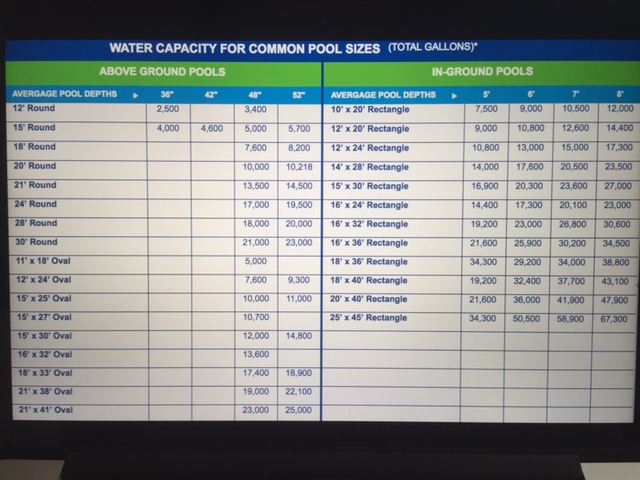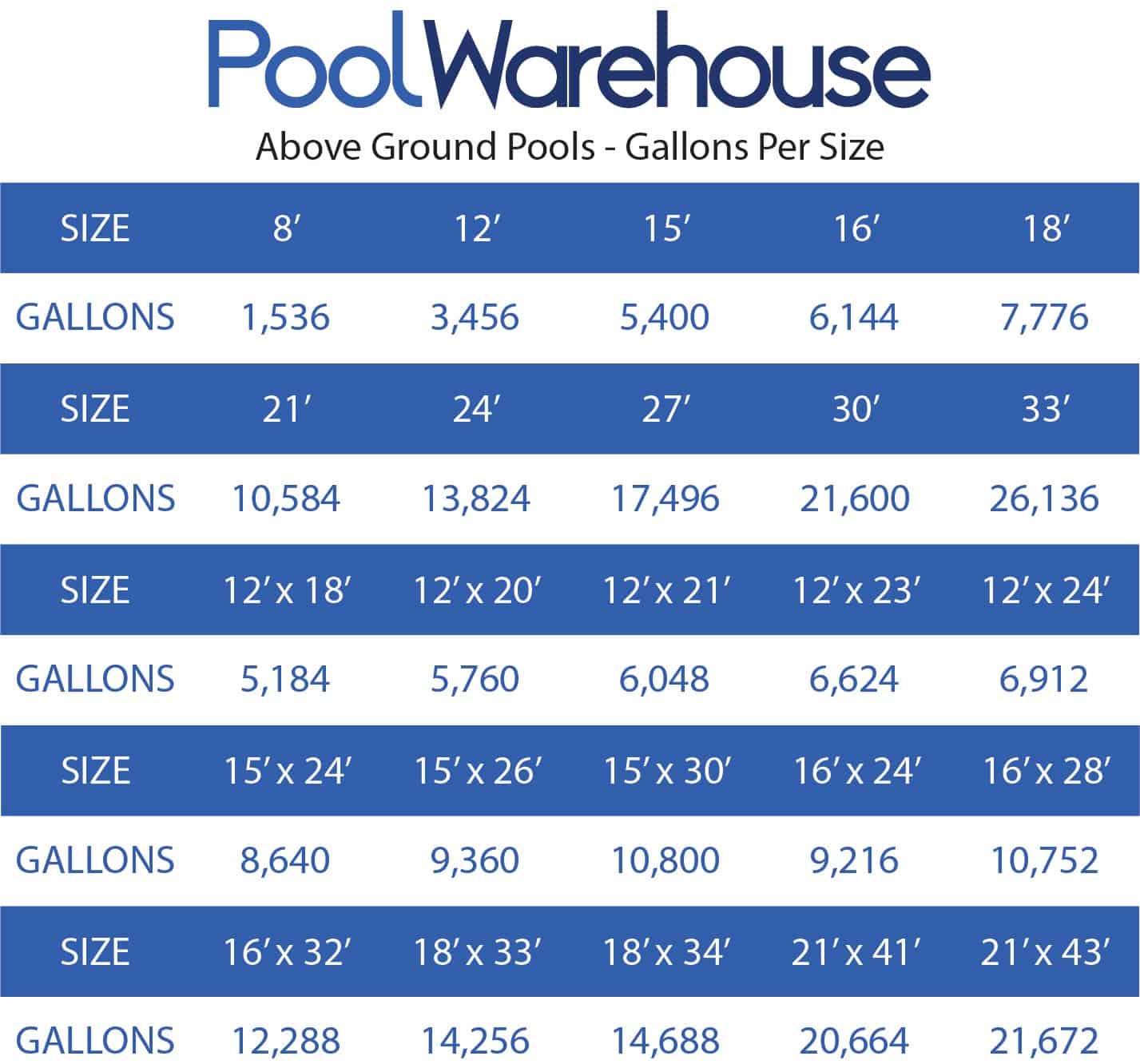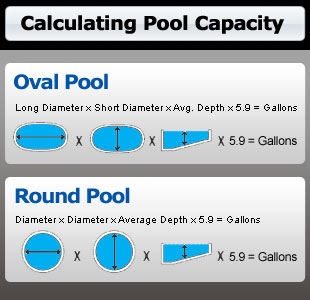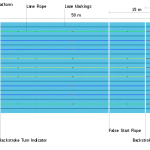A standard-sized pool usually holds around 20,000 to 30,000 gallons of water. Swimming pools come in various sizes, ranging from small backyard pools to larger public or commercial pools.
The exact number of gallons in a pool depends on its dimensions and depth. On average, a pool typically contains 20,000 to 30,000 gallons of water. However, larger pools can hold even more water, often exceeding this range. To ensure accurate measurements, pool owners can consult pool professionals or use pool volume calculators that take into account the pool’s shape and dimensions.
Knowing the number of gallons in a pool is essential for maintaining proper water chemistry, temperature, and balance, ensuring a safe and enjoyable swimming experience.
Understanding Pool Measurements
Discovering the volume of a pool is crucial for maintenance. Calculating the gallons in a pool involves understanding its dimensions. Measure the length, width, depth accurately for an accurate estimation of the pool’s water capacity.
Understanding Pool Measurements Measuring the volume of your pool is essential for maintenance and proper chemical treatment. Knowing how many gallons are in a pool helps you determine the correct amount of chemicals needed and ensures proper circulation. Understanding pool measurements requires knowledge of different units used for pool volume and how to convert between them. Different Units Used for Pool Volume When it comes to measuring the volume of a pool, different units are used. The most common units include gallons, liters, and cubic meters. Gallons are often used in the United States, while liters and cubic meters are used in other parts of the world. Familiarizing yourself with these units will help you understand pool volume measurements better. Here is a breakdown of the common units used for pool volume: – Gallons – Liters – Cubic Meters Conversion Between Units for Pool Volume Converting between different units for pool volume may be necessary depending on where you are located and the measuring system you use. Knowing how to convert measurements between gallons, liters, and cubic meters will help you effectively communicate with pool professionals, especially if you’re traveling abroad. Here’s a simple guide for conversion between different units for pool volume: 1 gallon = 3.78541 liters 1 liter = 0.264172 gallons 1 cubic meter = 1,000 liters 1 cubic meter ≈ 264.172 gallons Understanding pool measurements involves familiarizing yourself with different units used for pool volume and knowing how to convert between them. Whether you measure in gallons, liters, or cubic meters, accurate pool volume measurements are vital for proper maintenance and chemical treatment.

Credit: www.poolpeople.com
Factors Affecting Pool Volume
Understanding the factors that affect pool volume is crucial for accurate volume calculation and proper pool maintenance. Factors such as the shape of the pool, variations in pool depth, and the type of pool construction all play a significant role in determining the overall volume of the pool.
Standard Pool Shapes And Their Volume Formulas
When calculating the volume of a pool, the first step is to consider the shape of the pool, as different shapes require different volume formulas. Here are the volume formulas for some standard pool shapes:
| Pool Shape | Volume Formula |
|---|---|
| Rectangular | V = L × W × D |
| Circular | V = π × r2 × D |
| Irregular | V = A × D |
Accounting For Pool Depth Variations In Volume Calculations
Pool depth variations can significantly impact the overall volume of the pool. When calculating the volume, it’s crucial to account for variations in pool depth. The formula for calculating pool volume by varying depth is as follows:
V = A × D
Where V represents the volume, A is the surface area, and D is the average depth of the pool. By incorporating the average depth into the volume calculation, a more accurate representation of the pool’s volume can be obtained.
The Formula For Calculating Pool Gallons
Volume Calculation Based On Pool Shape
To estimate the gallons in a pool, use the formula:
- For rectangular pools: Length (ft) x Width (ft) x Average Depth (ft) x 7.5 = Gallons
- For oval pools: Length (ft) x Width (ft) x Average Depth (ft) x 6.7 = Gallons
- For round pools: Diameter (ft) x Diameter (ft) x Average Depth (ft) x 5.9 = Gallons
Adjusting The Formula For Irregular Pool Shapes
If the pool shape is irregular, divide it into sections of known shapes for calculation.
Example:
| Section | Shape | Dimensions |
|---|---|---|
| Section A | Rectangle | Length: 10ft, Width: 4ft, Depth: 5ft |
| Section B | Oval | Length: 8ft, Width: 6ft, Depth: 4ft |
Total Gallons = Gallons from Section A + Gallons from Section B
Practical Steps To Calculate Pool Gallons
Calculating the number of gallons in your pool is an essential step in pool maintenance. By knowing the precise gallonage, you can determine the right amount of chemicals, estimate water usage, and ensure proper filtration. Here, we will guide you through the practical steps to calculate pool gallons using accurate pool dimensions and a simple gallon calculation formula.
Measuring Pool Dimensions Accurately
Before you start calculating pool gallons, it is crucial to measure your pool dimensions accurately. Here’s how:
- Start by measuring the length of your pool from one end to the other. Ensure that your measuring tape is straight, level, and aligned with the pool’s walls or edges.
- Next, measure the width of the pool by extending the measuring tape perpendicular to the length measurement. Again, ensure that the tape is level and straight.
- For pools with irregular shapes, break down the pool into multiple geometric shapes (such as rectangles, circles, and triangles) and measure each section individually. Add up these measurements to get the total dimensions of your pool.
- Finally, measure the average depth of your pool. Take several measurements at different points in the pool and calculate the average by adding them up and dividing by the total number of measurements.
By accurately measuring your pool dimensions, you can proceed to the next step with precise information.
Applying The Gallon Calculation Formula
Once you have the accurate dimensions of your pool, you can apply a simple gallon calculation formula to determine the total number of gallons:
| Pool Shape | Formula |
|---|---|
| Rectangular or Square | Length x Width x Average Depth x 7.5 |
| Circular | (Diameter^2 x Average Depth x 5.9) ÷ 1,000 |
| Oval | (Length x Width x Average Depth x 5.9) ÷ 1,000 |
Simply plug in the values you measured into the appropriate formula based on the shape of your pool. Multiply the length, width, average depth, and the corresponding constant factor to obtain the total number of gallons in your pool.
Once you have the gallonage, you can make informed decisions regarding water treatments, maintenance, and equipment requirements for your pool.
Ensuring Accuracy In Pool Gallon Calculations
A crucial aspect of maintaining a pool is accurately knowing its volume, as this directly ties into proper treatment, maintenance, and safety. Ensuring accuracy in pool gallon calculations is paramount to guarantee the correct use of chemicals, filters, and pumps, thus preventing potentially harmful imbalances in the water chemistry. Let’s delve into the importance of double-checking measurements and considerations for water displacement and overflow to ensure accurate pool gallon calculations.
Importance Of Double-checking Measurements
To accurately determine the gallons in a pool, precise measurements are essential. Double-checking measurements is critical to minimizing errors that can lead to inaccurate gallon calculations, which can adversely impact the chemistry and overall maintenance efficiency of the pool. It is indispensable to ensure the correct dimensions of the pool, including length, width, and depth, are recorded accurately before proceeding with calculations.
Considerations For Water Displacement And Overflow
Water displacement and overflow need to be taken into account, especially in a pool with irregular shapes or features such as steps or benches. Accurately measuring these areas and considering the volume of water they displace is crucial for precise gallon calculations. Additionally, understanding how overflow might impact the pool’s volume is essential, as excessive overflow could lead to inaccurate assessments.

Credit: poolstar.net
Utilizing Technology For Precise Calculations
Utilizing technology for precise calculations when determining the number of gallons in a pool can save time and ensure accuracy. With the use of pool volume calculators and online tools, pool owners can easily and accurately determine the volume of their pool, leading to more efficient maintenance and care.
Pool Volume Calculators And Online Tools
Pool volume calculators offer a user-friendly interface, enabling pool owners to input the dimensions of their pool, including length, width, and depth, to obtain an accurate gallonage measurement. Similarly, online tools provide a convenient way to calculate pool volume by simply entering the required dimensions, with results delivered instantly.
Benefits Of Using Technology For Pool Gallon Calculations
- Time-saving: Efficiently determines pool volume without manual calculations.
- Accuracy: Reduces the margin for error, ensuring precise gallonage measurements.
- Convenience: Accessible from any device with an internet connection, making it easy to utilize.
- Prevent Overfilling: Helps prevent overfilling a pool, which can result in water wastage and potential damage.
- Saves Costs: By accurately measuring the pool volume, it helps avoid unnecessary chemical overuse.

Credit: www.poolwarehouse.com
Conclusion
To summarize, understanding the number of gallons in your pool is vital for maintenance. By calculating accurately, you can ensure proper chemical balance and optimal water levels. Keeping your pool in good condition not only enhances enjoyment but also prolongs its lifespan.
Stay informed to make the most of your pool experience.




